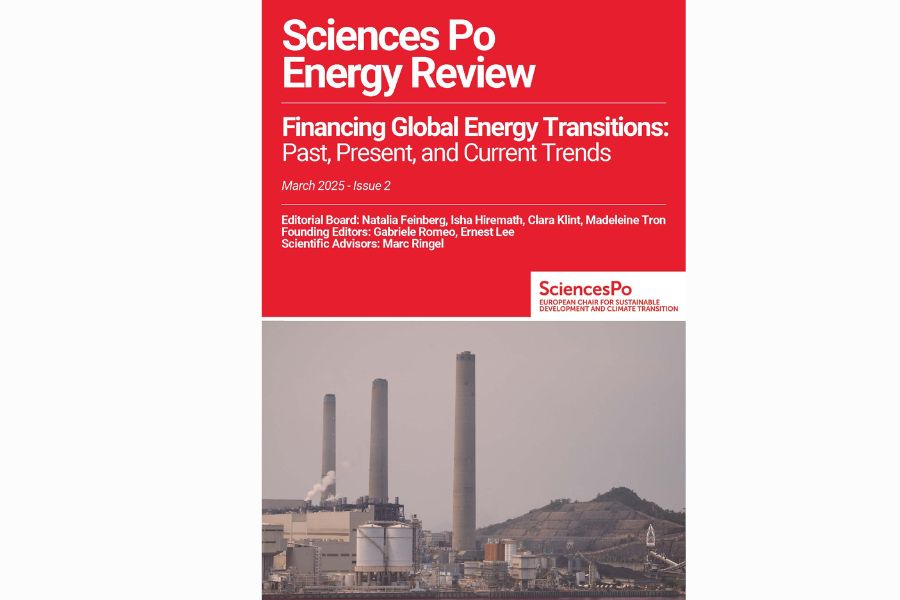
Event Summary: 10 Years after the Paris Agreement – Insights from Climate Leaders on Multilateralism and the Future of Climate Action
7 March 2025
Energy and Climate Cooperation Between the European Union and Japan – Time to Change Gears
21 March 2025Read and download the second issue of the Sciences Po Energy Review here
About the Sciences Po Energy Review
The Sciences Po Energy Review is a graduate student-led publication to advance dialogue about energy. Motivated by the pressing global need for energy transitions, the journal primarily employs a social scientific approach without being constrained by any single discipline, featuring graduate student writing and expert analyses. By placing contributors in conversation with peers and experts, the publication seeks to strengthen existing debates and research about energy at Sciences Po and beyond and welcomes submissions from all around the world.
The Sciences Po Energy Review is hosted by the European Chair for Sustainable Development and Climate Transition.
Issue 2
The global energy transition is at a critical juncture — investments made today must balance current and future demand along with sustainability. With global energy investments surpassing USD 3 trillion and the ratio of clean technologies to fossil fuels shifting to 2:1 in 2024, the infrastructure built today will shape human development well into the 2040s. China’s rapid industrial policy has driven the cost reduction and global availability of clean technologies like solar PV and batteries, but this concentration of value chains is reshaping geopolitical power and trade dynamics. Meanwhile, the global climate finance framework faces turbulence — Trump’s return to office and the US withdrawal from the Paris Agreement have destabilized international climate commitments, with only 13 of 195 countries submitting their 2035 climate pledges on time. Private actors and sovereign wealth funds are stepping in to fill financing gaps, but the long-term resilience of these efforts remains uncertain amid declining enthusiasm for ESG and decarbonization investment.
As the Sciences Po Energy Review explores these complex challenges, it brings together critical insights and fresh perspectives on energy financing. From rethinking existing debt instruments and public-private partnerships to leveraging technological expertise for next-generation geothermal development, the issue delves into both practical and theoretical solutions. Essays and debates examine the political economies of fossil fuel states, the promise and pitfalls of innovative finance mechanisms like carbon markets, and the transformative potential of AI-driven risk analytics for emerging economies.
The second issue of the Sciences Po Energy Review delves into the past, present and future trends of energy financing through three formats: interviews with three experts, a debate section, and eight critical essays.
Editorial team
The current editorial team comprises students enrolled in master’s programmes at the Paris School of International Affairs (PSIA) at Sciences Po.
- Editorial Board: Natalia Feinberg, Isha Hiremath, Clara Klint, Madeleine Tron
- Founding Editors: Gabriele Romeo, Ernest Lee
Scientific advisor
The academic rigour and intellectual integrity of the Sciences Po Energy Review is enhanced and guaranteed through the appointment of the following scientific advisor:
- Marc Ringel: Chairholder at the European Chair for Sustainable Development and Climate Transition at Sciences Po


